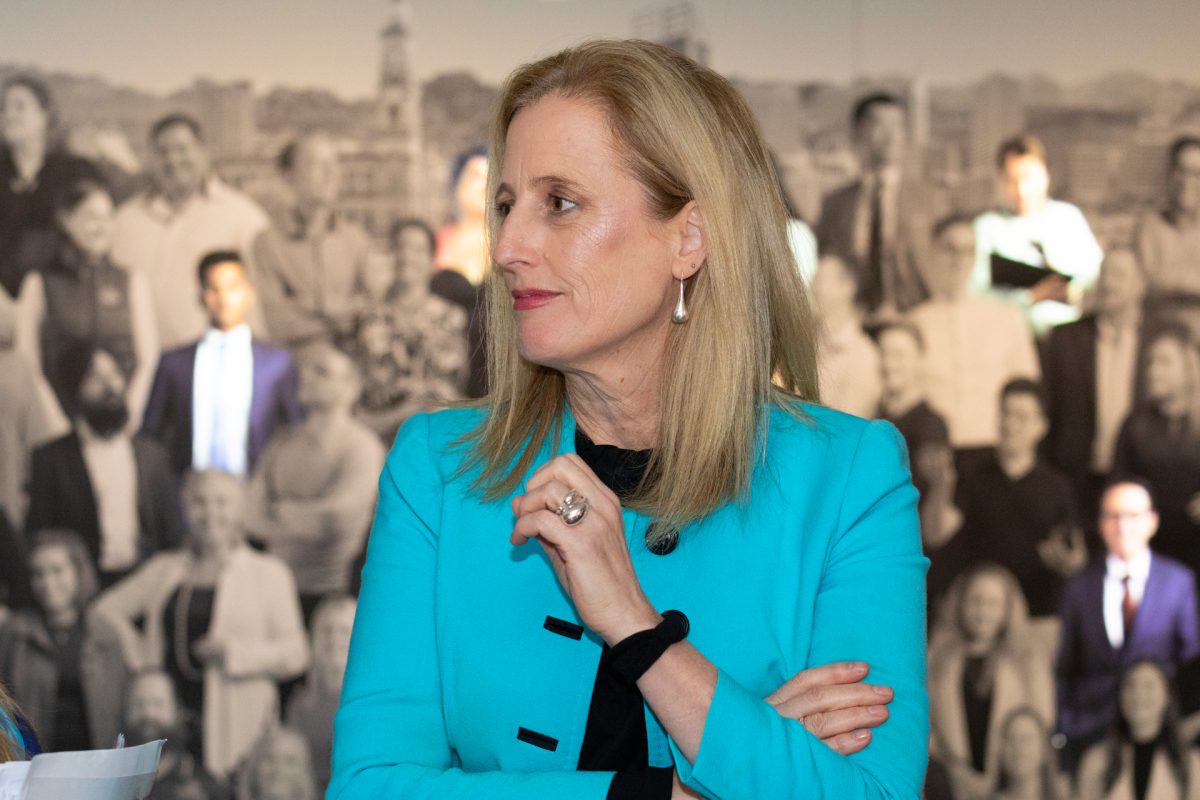
Public Service Minister Katy Gallagher is delighted Australia ranked so highly in the OECD Digital Government Index. Photo: Michelle Kroll.
The APS’s embracement of digital transformation looks to be paying off, with Australia ranking 5th in the world by the OECD Digital Government Index.
Published this week, the DGI assessed 38 countries for their approach to digital government and found the Australian Government scored highly across all six areas examined by the OECD.
Australia’s overall score was 75.3 per cent, well ahead of the OECD average of 60.5 per cent.
Where we fell down was in ‘openness’ in communicating and sharing digital data.
It was the first time Australia had been included in the index, which found the best 10 performing countries in 2023 were South Korea, Denmark, United Kingdom, Norway, Australia, Estonia, Colombia, Ireland, France and Canada.
“The overall results of the DGI reflect the developments made by governments to advance the digitalisation of the public sector during the assessment period,” the report states.
“Nearly all governments scored above the 0.5 mark, situating themselves in the upper half of the index, with an OECD average of 0.605. This implies that, on a scale from 0 to 1, where 1 indicates the highest level of efforts in establishing the enabling foundations for a digital transformation of the public sector that is coherent and human-centred, most countries are closer to this level than away from it.
“The balanced performance of these [top 10] countries across the six dimensions reflects their comprehensive efforts in the implementation of digital government policies.”
There were six areas of assessment and Australia ranked well across all of them.
Australia received an index rating of 97 per cent in the Digital by Design category – using digital solutions to simplify engagement with citizens.
For User-driven – placing people’s needs and convenience at the centre of service delivery – Australia scored 83 per cent.
Data-Driven – governance, access, sharing and re-use of data for service delivery – it rated 77 per cent.
For Proactive – anticipating and responding to the needs of citizens – Australia got 74 per cent.
For Acts As Platform – transformation of government processes to better deliver crucial services – 74 per cent.
However, the Open by Default category – the release of open data, including communicating and engaging with different actors – brought the average down. Australia only reached 46 per cent on this metric; however, most countries are struggling in this area.
Public Service Minister Katy Gallagher said Australia ranking 5th in the world for digital transformation recognised the hard work and numerous initiatives of the Australian Public Service.
“This is the first time Australia has participated in the OECD DGI and to debut in the top five is an impressive achievement. We want to keep this momentum going,” Senator Gallagher said.
“We’re doing this by investing in critical digital infrastructure like myGov and making access to services safer and more convenient with Digital ID.
“At the end of last year, we released the first combined Data and Digital Government Strategy for the Australian Government, with a 2030 vision of simple, secure and connected public services.”
But the minister said progress in this area had to be closely evaluated to ensure it was achieving the best results.
“The OECD’s rankings will continue to be important as we track our progress implementing the strategy,” she said.
“The rapid development of data and digital technologies create a significant opportunity for the Australian Public Service, but this must be monitored and measured so we can be sure we’re achieving the ultimate goal of better outcomes for people.”
In its digital index report, the OECD stresses that digital government is essential to transform government processes and services in ways that improve the responsiveness and reliability of the public sector.
“During the COVID-19 pandemic, it also proved crucial to governments’ ability to continue operating in times of crisis and provide timely services to citizens and businesses,” it states.
“Yet, for the digital transformation to be sustainable in the long term, it needs solid foundations, including adaptable governance arrangements, reliable and resilient digital public infrastructure, and a prospective approach to governing with emerging technologies such as artificial intelligence.”
Original Article published by Chris Johnson on Riotact.










